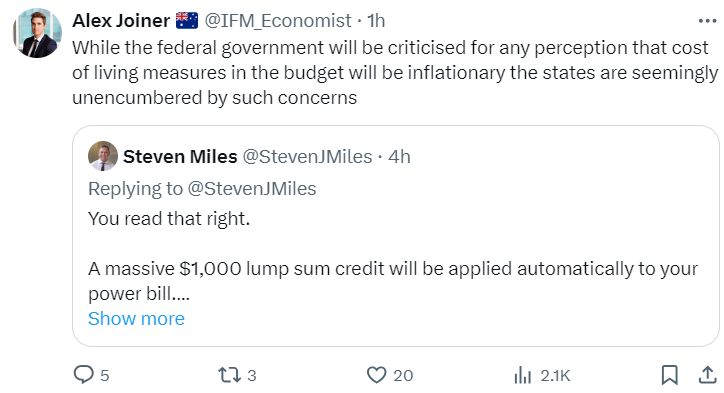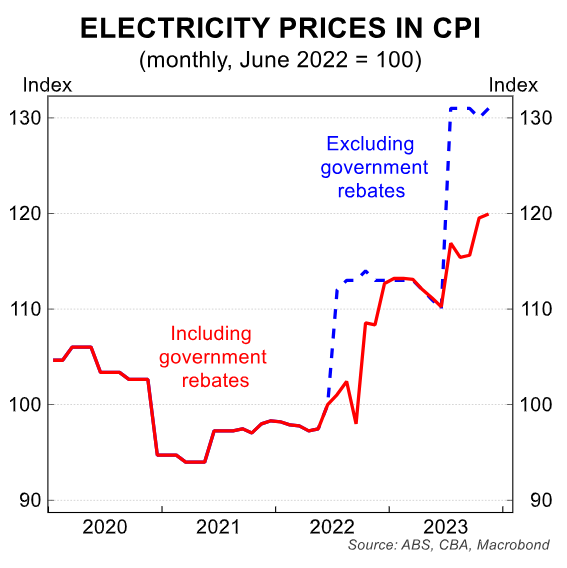The Queensland Government has announced a $1000 energy bill discount under a $2.5 billion government package to ease the cost of living relief.
Premier Steven Miles said it was the biggest contribution a state has ever made to help households with their energy bills.
The rebate will apply to bills from July, with many Queenslanders not paying a cent towards energy until 2025.
Seniors and concession card holders will receive a $1,372 rebate, while small businesses will continue scoring $325.
Deputy Premier Cameron Dick said a rise in royalties would cover the package’s funding, rather than borrowings.
“We have had a significant increase in price in the first part of the financial year. That’s where the money is”, he said.
Strangely, several economists have attacked the announcement claiming that it will stoke inflation.
Judo Bank chief economic advisor, Warren Hogan, was especially scathing, describing the policy as irresponsible and “incredibly cynical electioneering”:

David Scutt said similar:

Tarric Brooker was also sceptical:

Whereas Alex Joiner pointed the hypocrisy of attacking federal government subsidies when the states are doing similar:

To the contrary, I see Queensland’s announcement as sensible policy.
First, the subsidy will directly lower energy price inflation in the CPI, just as prior subsidies have done:

As shown above, energy subsidies reduced energy prices in the CPI by more than 10%, according to the Australian Bureau of Statistics.
Second, the state budget for 2022 increased coal royalties, which are what are paying for the reduction in energy bills. Thus, the bill relief is a form of dividend paid to Queensland households for the profits earned on the state’s mineral wealth.
If anything, the Queensland Government should follow suit, hike royalties on the gas sector, and deliver further financial benefits to Queenslanders.
Third, Queensland is an energy superpower that exports far more resources (coal and gas) than it consumes in domestic power generation. Given that Queensland is awash with energy resources, why shouldn’t households enjoy low-cost energy?
That said, energy relief is a cyclical band-aid solution to the structural problem of high energy costs, which has been caused by policy failure.
Long-term, the state government should act to bring down energy prices via a combination of 1) domestic gas reservation similar to Western Australia; 2) price caps on the price of domestic gas; and 3) levies on per unit exports of gas and coal.
Given its abundance of resources, Queenslanders should be enjoying some of the cheapest energy prices in the world, not globally expensive energy.

